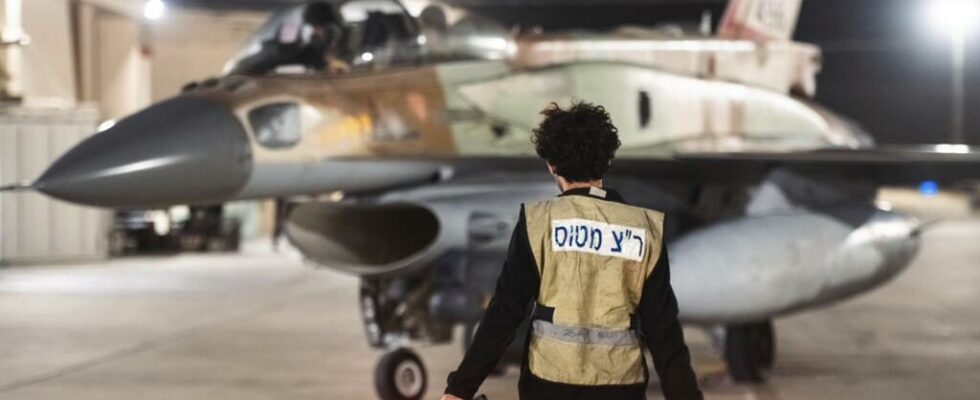Details are beginning to trickle out about the strikes carried out by Israel on military targets in Iran. The attack caused four deaths and minor damage, according to Iranian authorities.
2 mins
Rejected several times, notably due to leaks to the Pentagon of the attack plans, the Israeli strike is based on a major principle: hitting the greatest number of targets on Iranian territory without necessarily provoking a new response from Tehran, reports our correspondent in Jerusalem, Michael Paul.
In any case, Israeli officials are very discreet about the targets which were targeted by around a hundred fighter bombers accompanied by tanker planes more than 1,600 kilometers from their bases.
Israeli media cite anonymous military sources who explain that the Israeli air force initially neutralized around ten key Iranian air defense batteries. In particular Russian S300s near Tehran international airport, but also systems deployed in Syria and in Iraq. In total, around twenty sites were targeted in subsequent waves, including several missile and drone factories.
According to unconfirmed sources, one of the strikes targeted Parchin, a ballistic missile base not far from Tehran where tests linked to the Iranian nuclear program are also taking place.
Strikes from Iraqi airspace
According to the General Staff of the Iranian Armed Forces, Israeli fighter jets entered Iraqi airspace in the part controlled by the UNITED STATESreports our correspondent in Tehran, Siavosh Ghazi. They were unable to get close to Iranian skies and fired missiles from a distance of 100 kilometers from the border to target radar systems along the border and in the Tehran area.
But the entry into action of the anti-aircraft system prevented Israeli planes from entering Iranian skies and many missiles were intercepted, according to the statement, which added that the radar systems suffered minor damage.
This is the first time that Iran has given details of the Israeli operation. In the press release, the general staff of the armed forces affirms that Iran reserves the right to respond when the time comes. Already, the Iranian Minister of Foreign Affairs had affirmed that there were no limits to defending Iranian territory.
The whole question is whether Iran will launch new attacks against Israel or leave it at that, since the Iranian authorities claim that the Israeli operation was not a success and that the damage was minor.
Also readIsraeli bombings in Iran: Tehran claims to have “the duty to defend itself”
